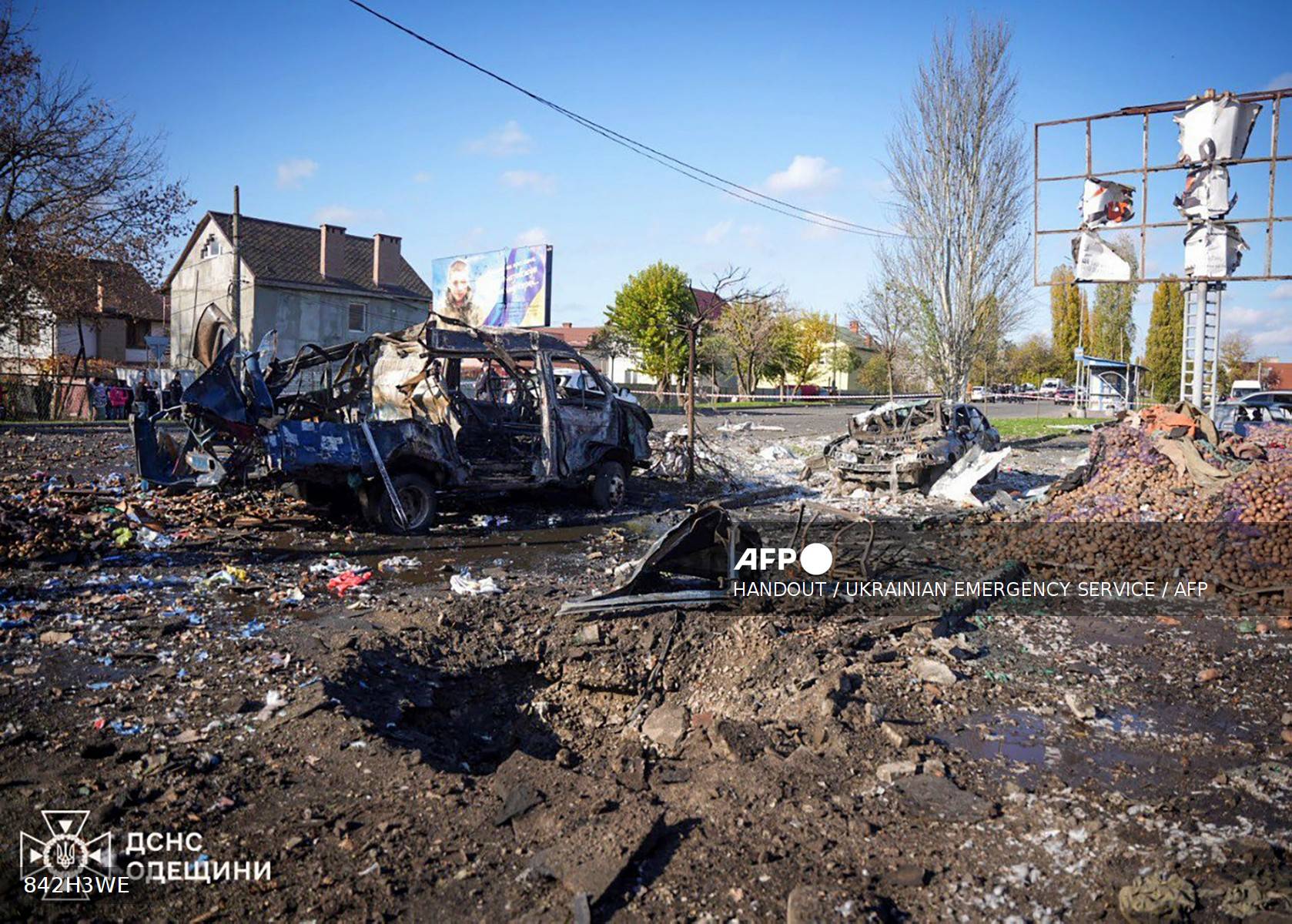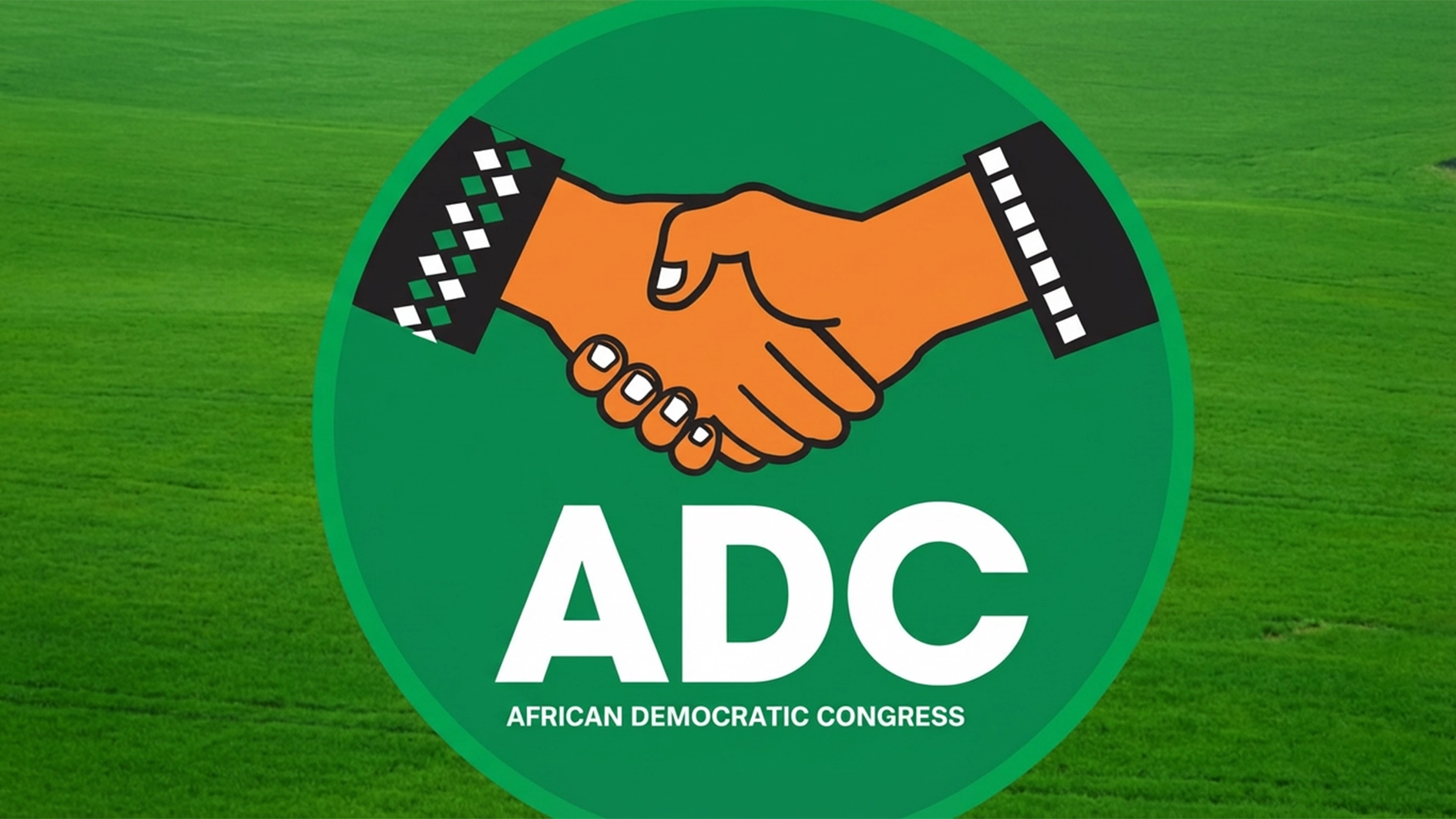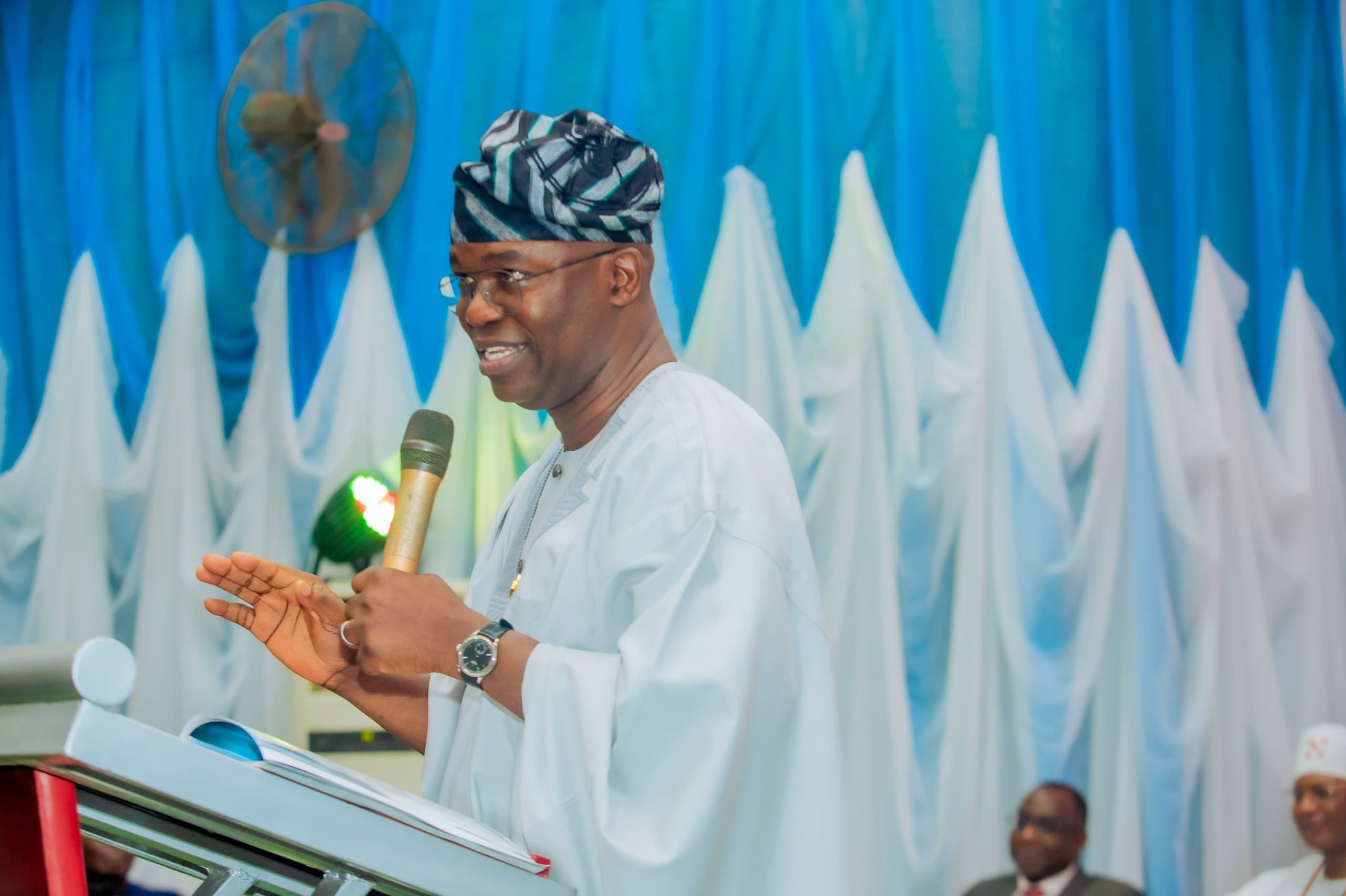• Denial of Christian genocide injustice to victims, faith community – Northern CAN
• Missionary: Trump’s spotlight on violence in Nigeria an answered prayer
• Gumi accuses Middle Belt groups of fabricating genocide claims, burying empty coffins
• IPOB behind foreign account comments on Christian genocide, Bwala alleges
• UN security adviser seeks stronger collaboration with Nigerian troops to tackle terrorism
The Christian Association of Nigeria (CAN) in the 19 Northern states has affirmed that the killings of Christians in Northern Nigeria amount to genocide, adding that the denial of Christian genocide is an injustice to victims and the faith community
This is as the chairman of the Presidential Committee on Tax Policy and Fiscal Reforms, Taiwo Oyedele, yesterday dismissed claims that the recent sell-off in the Nigerian capital market was triggered by foreign investors reacting to U.S. President, Donald Trump’s comments about Nigeria.
Speaking on Channels Television’s Business Morning, Oyedele explained that the fluctuations in the Nigerian Exchange (NGX) were part of normal market cycles rather than politically driven sell-offs.
“The capital market is always an up-and-down situation,” he said. “Even after the sell-off yesterday, returns are still slim to about 40 per cent, and in dollar terms, about 50 per cent. This remains one of the best-performing markets in the world, and we want it to do even better. But there is no market where things always continue to go up.”
He noted that investors tend to take profits after extended periods of gains, leading to momentary declines, which should not be misinterpreted as panic reactions.
Oyedele added that if any sell-offs had indeed been influenced by Trump’s comments, “those people should be foreign investors, because Nigerian investors will not sell off because of Trump. Otherwise, where will they take the investments to?”
He emphasised that since foreign investors were not exiting the market, the recent dip could not be attributed to external political tensions.
Trump, in an explosive post on his Truth Social platform on November 2, ordered the Pentagon to map out a possible plan of attack in Nigeria, one day after warning that Christianity was “facing an existential threat” in Africa’s most populous country.
In his post, Trump said that if Nigeria does not stem the killings, the United States will attack and “it will be fast, vicious, and sweet, just like the terrorist thugs attack our CHERISHED Christians.”
THERE were more voices of support yesterday for Trump’s insistence on Christian genocide in Nigeria. Making the affirmation on ARISE News yesterday, the chairman of the CAN in the 19 Northern states and the FCT, Rev. John Hayab, insisted that the denial of their persecution is unjust to victims and their families.
He stressed that while global leaders have raised alarms, Nigerian authorities must recognise that religiously motivated attacks have been ongoing for decades, long before the Boko Haram insurgency.
“Can I consider what has been happening as genocide against Christians? My straightforward answer is Yes,” Hayab affirmed, highlighting that the violence predates Boko Haram.
He noted that attempts to downplay the crisis as mere farmer-herder conflicts ignore the reality witnessed by those who have buried victims and were not only misleading but also disrespectful to those who had lost their lives and loved ones because of their faith, adding that failure to acknowledge the targeted attacks against Christians had made genuine reconciliation and national unity difficult.
Hayab explained, “Anybody who says there is no Christian genocide is not being fair to the Christians of Northern Nigeria. Some of us have buried victims in large numbers. We can name the dates and locations. These are not imaginations; they are lived experiences.”
He recalled that long before the Boko Haram insurgency, several crises specifically targeted Christians, including the 2000 Sharia riots in Kaduna and the 2002 Miss World riots, which left hundreds dead and churches destroyed. “I personally took part in some of the burials. Pastors were killed, churches were burnt, and entire families were displaced simply because of their faith.”
Beyond the killings, the Northern CAN Chairman expressed concern over what he called institutional discrimination against Christians in education and public institutions.
“Our children are denied admission to certain universities, not because they are not qualified, but because they are Christians. In many public schools, Christian students have no chapels and are forced to worship in classrooms,” he assured.
He urged the government and citizens to first acknowledge that something had gone wrong before efforts at reconciliation could be meaningful. “If we admit that Christians have been killed and indeed we have buried many, then we can begin to heal, but as long as we keep denying it, we will continue to deceive ourselves,” he added.
Tracing the roots of religious extremism in Northern Nigeria, Hayab noted that such intolerance did not begin with Boko Haram, citing the Maitatsine uprisings of the late 1970s and early 1980s as an early sign of violent ideology that has since evolved into terrorism.
According to him, “back then, the term ‘terrorism’ wasn’t common, but what Maitatsine did was exactly terrorism. Boko Haram only made the ideology more official; that anyone who does not share their belief is an infidel.”
ANOTHER Christian leader has said President Trump’s push to end the violence against Christians is an “answered prayer.” Andrew Gwaivangmin, the executive secretary of the Nigeria Evangelical Missions Association, told Fox News in an interview that Christians are “excited” that Trump is prioritising efforts to stop the killings of believers after years of bloodshed.
“We have cried out to the international community to force our government to do the right thing. This is the only time that America is focusing its attention on this violence in Nigeria. So, as a Christian, I’m excited,” he said.
“I’m happy that Trump is focusing on ensuring that this violence stops. Anybody who doesn’t support the intervention by Trump, clearly, you know that the person doesn’t understand the reality and the gravity of the violence that has occurred in the north of Nigeria over the last 10 years.”
Gwaivangmin told Fox News that many of his organisation’s missionaries have been attacked and killed. “We’ve had casualties. We’ve had to bury our missionaries. Our missionaries have to directly relocate. In fact, I can tell you that today, we have hundreds of widows whose husbands have been killed in their field as missionaries,” he said.
The leader of the largest global missions organization for the Nigerian Christian church said he would welcome U.S. military involvement to help end the violence. He believes having American boots on the ground isn’t realistic, but hopes the United States can provide logistical support and equipment to strengthen Nigeria’s forces.
Similarly, the CAN chairman in Kajuru local government area of Kaduna State, Rev. Enoch Kaura, has alleged that the local government has been subjected to relentless attacks by bandits, including abductions, killings, and ransom payments.
Kaura revealed that many pastors in the local government have lost their lives in banditry attacks.
He listed some the deceased clerics to include Pastor Michel Shadari, Pastor Adalci Usman, Pastor Benard, Rev. Aliburah, Rev. Narimi, Rev. Thomas Gaku, and Rev. Anthony Lamba, among others.
“Three pastors’ wives were also brutally killed,” he lamented. “Over a thousand people have fallen victim to these violent attacks. In Doon Noma alone, 86 people were killed in a single incident, followed by another 36 fatalities. Hundreds have been kidnapped. Churches have also been targeted, with recent attacks in Ugakala, Maro Ward, resulting in one death and several injuries.”
He explained that places like Karamai, Ungwan Gajere, Gidan Duna, Agwala Makaranta, and others have been abandoned due to insecurity, expressing delight that the efforts of Governor Uba Sani, have provided some respite, enabling people to access their farms.
He lamented that these efforts appear to be waning, saying that people are once again being prevented from harvesting their crops.
BUT controversial Islamic cleric, Sheikh Ahmad Gumi, has alleged that some groups in the Middle Belt have been “burying empty coffins” to falsely portray mass killings of Christians and promote what he described as a “fake narrative” of genocide. Gumi made the claim in a post on his verified Facebook page while reacting to criticisms that trailed his ongoing stay in Turkey.
He wrote, “A Doctor wrote me: Do you know that some Middle Belt Christian groups are now staging fake mass killings? They are burying empty coffins and recording the process as if real victims were killed, just to push the narrative of a Christian genocide. This is desperation at its peak. A disgrace. Manipulating information just to provoke hatred and international sympathy?”
The cleric, who has continued to grant interviews from Turkey, dismissed suggestions that he fled the country to avoid potential U.S. attacks, saying his trip had been scheduled before Trump’s statement.
In another development, Daniel Bwala, Special Adviser to President Bola Tinubu on Policy Communication, labelled the involvement of members of the Indigenous People of Biafra (IPOB) in the viral claim of Christian genocide in the country.
Bwala, in a Wednesday statement on X, expressed that the IPOB members are creating social media profiles representing top officials in Washington, DC, the capital of the United States of America, to make viral comments and statements on Christian genocide.
The statement reads: “Funny, IPOB members using white men and women faces with names sounding foreign to populate Twitter and Facebook purporting to be Americans reacting to issues. They are angered by the fact that we exposed them as elements behind the hoax Christian genocide; Reuters, BBC and others as well found them out in that deception.”
However, the Chief Security Adviser for the United Nations Department of Safety and Security (UNDSS) Nigeria, Senyo Kufe, has advocated for stronger collaboration with the Nigerian military, especially the frontline troops of the Joint Task Force (JTF) North East, Operation HADIN KAI (OPHK) in Maiduguri, Borno State, to stem the tide of terrorism and other criminalities bedevilling the region. The visit formed part of his ongoing nationwide visit to the theatre, familiarisation and operational assessment tour across Nigeria.
In his remarks, Kufe, who assumed office in August 2025, described the Northeast as the “engine room” of Nigeria’s security operations, noting that the region plays a pivotal role in national and humanitarian security. He commended the Nigerian military for its professionalism and continued assistance to UNDSS activities, adding that the visit was also an opportunity to reinforce the bond between the UN and the Theatre Command.
The Chief Security Adviser appreciated the Theatre Command for its support, security guidance and assessment, especially physical security. Kufe added that his visit to Maiduguri will no doubt allow him to have firsthand information, noting that without the military, UN staff cannot stand on their own in the Northeast region.
In his remarks, Udit Mehta, Area Security Adviser and Field Coordination Officer, North East, expressed appreciation to the Theatre Commander, Major General Abdulsalam Abubakar, for his purposeful leadership, sustained collaboration, and unwavering support to the UNDSS.
He emphasised that the visit aimed to strengthen the partnership and seek enhanced cooperation in ensuring the safety and security of UN personnel operating in the Northeast.
Responding, the Theatre Commander, Major General Abubakar, reaffirmed OPHK’s commitment to supporting the UNDSS in achieving its mandate. He highlighted ongoing military operations and rescue efforts in the region, stressing the importance of maintaining strong civil-military relations and continuous partnership with the UN and other international stakeholders.
The discussions during the meeting centred on strengthening collaboration in areas such as emergency preparedness, disaster response, information sharing, and security management. Both parties agreed to deepen joint training programmes and improve coordination mechanisms to enhance operational safety and risk management.






